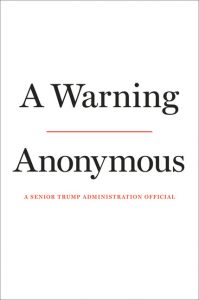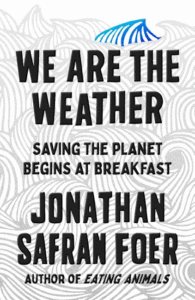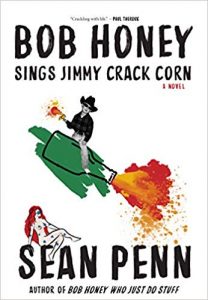
Happy Holidays, fellow Schadenfreuders.
As longtime devotees will know, for one day and one day only here at Book Marks—a wholesome and benevolent institution dedicated to helping readers find the books they’ll love by spotlighting the best in contemporary literary criticism—we your friendly neighborhood book review aggregators put on our black hats and seek out the most deliciously virulent literary take-downs of the past twelve months. It’s a ritual blood-letting exercise carried out in an effort appease the Literary Gods, thereby guaranteeing a good book review harvest in the year to come, and we take it very seriously.
Among the books lying prone on the sacrificial altar this year: E. L. James’ brain-bleaching Fifty Shades follow-up, Bret Easton Ellis’ needy screed against millennials, David Cameron’s bitter ooze of a memoir, and, of course, another Sean Penn novel.
Let’s get the knives out.
*
“It’s not just that The Mister is bad. It’s that it’s bad in ways that seem to cause the space-time continuum itself to wobble, slightly, as the words on the page rearrange themselves into kaleidoscopic fragments of repetition and product placement … The one positive thing you can say about The Mister is that it steers (mostly) clear of BDSM, and so doesn’t misinform millions of readers about the dynamics of consent … The Mister is no different, really, in that its male characters have power and its female characters cook and clean … She gives us internal monologues that have the breadth and emotional resonance of the white pages … This kind of indiscriminate detail explains why The Mister is more than 500 pages long, but what’s baffling is that despite this exhaustive access to the inner workings of Maxim’s mind, he’s as wooden and charmless as a sideboard … Even more than it’s offensive, though, The Mister is tedious. It’s laborious. James retains her capacity to write sex scenes that last thousands of words in a row, but not without including turns of phrase that make you, as the reader, want to bleach your own brain … Stories like The Mister, which seem to want to wrench female sexuality and status back into the realm of feudalism, have a long distance to go to catch up.”
–Sophie Gilbert on E. L. James’ The Mister (The Atlantic)
“It’s been difficult to miss Ian McEwan. The Cockroach, his satirical new Brexit novella, is his second book this year and his third in three years. The Cockroach is so toothless and wan that it may drive his readers away in long apocalyptic caravans. The young McEwan, the author of blacker-than-black little novels, the man who acquired the nickname ‘Ian Macabre,’ would rather have gnawed off his own fingers than written it. At dark political and social moments, we need better, rougher magic than this … McEwan is hardly a dummy; he derives more than a few witty-ish moments from his premise. The best arrive early … Once McEwan has established his premise, however, The Cockroach stalls. It devolves into self-satisfied, fish-in-barrel commentary about topics like Twitter and the tabloid press. The literary references…are plummy and tortured … The idea of writing The Cockroach probably seemed, in the shower one morning, like a good one. Later, after coffee, it might have occurred to McEwan that suggesting your opponents are cockroaches might be to drop down to their carpet level.”
–Dwight Garner on Ian McEwan’s The Cockroach (The New York Times)
“Pedophilia, necrophilia, child abduction, child murder, mass murder—go down the menu of fears and outré fantasies; they’re all here. And for what? This is a dull, needy book. The desire to seem shocking—as opposed to a curiosity about thresholds physical and ethical—tends to produce provocation of a very plaintive sort … With Roupenian, there is just the giddiness of her imagination, of what she can get away with … I wanted better for these characters — lives with real emotional stakes, actual personalities and not just kinks … characters remain their pathologies; the curtain falls on them before we can ever ask: Now what? There’s none of the simmer of ‘Cat Person; or its attention to language in the rest of these stories. Roupenian will work a metaphor until it screams. On a walk in the woods: ‘The vaginal lips of a pink lady’s slipper peep out from behind some bushes; a rubber shred of burst balloon, studded by a plump red navel knot, dangles from a tree branch, and the corpse of a crushed mushroom gleams sad and cold and pale.’ I might stay indoors for the rest of my life.”
–Parul Sehgal on Kristen Roupenian’s You Know You Want This (The New York Times)
“…a series of glorified, padded-out blog posts than a series of regular, normal-size blog posts … [a] deeply needless book … a rambling mess of cultural commentary and self-aggrandizement … Even the title White is a provocation, designed to simultaneously anticipate, incur, and mock accusations of white privilege … The thesis of White is that American culture has entered a period of steep, perhaps irreversible decline, and social media and millennials are to blame. This is ridiculous, not because social media hasn’t changed things tremendously, but because such claims are invariably rooted in a childish nostalgia … It is perfectly acceptable to bitch and moan about how the mean people didn’t like your good tweets, but there is a time and a place for such behavior, and it is not the offices of Alfred A. Knopf, publisher … Ellis refers to millennials as Generation Wuss, which sounds like something your dad made up. Lots of White is given to this kind of feeble bullying … The prose in White is shapeless, roving, and aggressively unedited. One waits in vain for an arresting image … one cannot read White as anything but a book about being rich and bored … [Ellis is] an angry, uninteresting man who has just written a very needy book.”
–Andrea Long Chu on Bret Easton Ellis’ White (Bookforum)
“The story is mostly a snooze: not so much The Silence of the Lambs as The Counting of the Sheep … the novel plods along with a hodgepodge of macabre silliness … Which is the central problem with Cari Mora. Despite all its ghastly goings-on, this creaky thriller constantly slips on banana peels of its own unintentional comedy—as though it craves to be Nosferatu but ends up like What We Do in the Shadows … Even Anthony Hopkins would strain to make this gory goofiness frightening … A couple of sentimental side stories eventually lead off to nowhere … Toward the end of the novel, a man-eating crocodile in Biscayne Bay suffers a small bout of indigestion while passing one of the gangsters he ate. Readers of Cari Mora are likely to suffer similar but wholly temporary discomfort.”
–Ron Charles on Thomas Harris’ Cari Mora (The Washington Post)
“In theory the book is Weiss’ response to the October 2018 massacre at Pittsburgh’s Tree of Life synagogue. This was a personal tragedy for Weiss: It unfolded not only in her hometown, but at the very synagogue where she was bat mitzvahed. Unfortunately, she has used the attack as a launch pad for a bizarre and undercooked exercise in rhetorical bothsidesism, in which she argues that American Jews should be just as worried about college students who overzealously criticize Israel as they are about the aspiring Einsatzgruppen who shoot up shuls … Part of the reason Weiss takes such a catastrophic tone, I think, is that she doesn’t just think anti-Zionism will lead to ‘cultural genocide,’ as she puts it. She is worried about real genocide … She seems to think that a lot of activists are, in their ‘insidious’ way, trying to get Jews killed. This doesn’t necessarily make the book any better. But it does help explain its volume and pitch … The fact that so much of Weiss’ conception of who is and who isn’t anti-Semitic comes down to how supportive they are of Israel could, ironically, end up fueling an emerging thread of anti-Semitic thought … In the end, though, the thing that bugs me the most about How to Fight Anti-Semitism is Weiss’ disdain for the people who are actually trying to do it. Specifically, she criticizes journalists who have spent time documenting and understanding online radicals … Weiss doesn’t seem to realize that part of stopping online radicalization, and perhaps the murders it leads to, is understanding how it works.”
–Jordan Weissmann on Bari Weiss’ How to Fight Antisemitism (Slate)

“However accurate and sobering such characterizations may be, they all belong in a folder labeled Stuff We Already Know. Unfortunately, much of A Warning reads like a longer version of the op-ed, purposely vague and avoiding big revelations in order to preserve the author’s anonymity. The writer admits as much … The writer’s decision is not necessarily cowardly, but worse, it is self-defeating. Anonymity is often granted to acquire additional information, but in this book, it excuses giving less. A Warning tells us plenty about what Anonymous thinks, not enough about what Anonymous knows. And without learning more about the writer, it’s tough to know what to make of either … In the absence of facts, readers are barraged by similes … It’s like ‘Profiles in Thinking About Courage’ … It is not clear why, if Anonymous has concluded that the quiet resistance is powerless, the author remains in the administration … We don’t need a secret administration insider to tell us to pass the torch of liberty; we need that person to detail whether and how the torch is being doused … parlor game? Maybe. But without a clearer sense of who Anonymous is and what this person has seen, done and is still doing, A Warning does not cut through the noise. It just creates more of it.”
–Carlos Lozada on Anonymous’ A Warning (The Washington Post)
“Nothing is believably conjured to life in Bottle Grove. No spell is cast, no character takes root in the reader’s heart. Captive to Handler’s cleverness, to his allusive play and lack of rigor, the reader tries to make sense of the proceedings, to no avail. Even as Handler stacks elision upon lacuna to paper over his plot holes and sudden narrative swerves, the whole house of cards grows more absurd, irrelevant, cloying and rickety. What’s worse, many developments follow an old sad sexist script. Padgett is a pawn. She is, among a company of literal ‘call girls,’ pimped out to the titan. That she doesn’t appear to mind is inexplicable. Handler even suggests that this makes her love Martin all the more … What on earth is a man justly celebrated for the books he writes under the name Lemony Snicket doing playing at rape? I couldn’t determine. One thing is clear: Throughout Bottle Grove, he is not in control of his larks and allusions. He’s simply having fun at his characters’ expense, and at the reader’s, too.”
–Joshua Ferris on Daniel Handler’s Bottle Grove (The New York Times Book Review)

“His newfound political life may have even played a role in his divorce last year, at least according to Page Six. One of the gossip page’s sources noted that Don Jr. ‘appears to have changed recently, and friends are concerned about him’ and that those concerns ‘were increased by Don Jr.’s tweeting.’ Don Jr. continued unbothered, using his newfound freedom to reach a sort of 24-hour hyperaggression usually only seen in Donald Trump’s most obsessive and devout followers. This book is the fullest expression of that transformation. Reading it, I even began to suspect that parts may have genuinely been written by Don Jr. himself. The excruciatingly insecure prose wasn’t the tell—that could have come from any of the hacks who work for him. It was that some of the errors are so ludicrous they couldn’t possibly have come from anyone else … One thing that seems to have sincerely preoccupied him is the incredibly dumb Baby Trump balloon that flew over London prior to an ultimately canceled visit from the president. Let’s make one thing perfectly clear: Don Jr. is not mad about the big balloon … Perhaps my favorite parts of the book, though, were the little bits of insight into what exactly it’s like to be Don Jr., national pariah and yet still somehow supremely adored megastar.”
–Ashley Feinberg on Donald Trump Jr.’s Triggered (Slate)
[Adèle is] a thriller only if you consider dozens of unsatisfying sexual trysts conducted with all the titillation of a Chia Pet commercial thrilling. Adèle is, at best, an oxymoronically sex-filled dud. At worst, it’s offensively oblivious to the idea that female characters in novels have, in fact, had sex before. It takes the premise of Madame Bovary—a discontented young woman imprisoned by her insatiable desires—and muddies Flaubert’s clarity of purpose into a tangle of sweaty limbs with a cigarette dangling out the side … I’ve never been so bored by kinky descriptions of cunnilingus or thrusting hips. Absent a compellingly conflicted psyche, knowing from the beginning that the protagonist gets no pleasure from a tongue on her body or a finger on her clitoris damns the whole enterprise. Still worse, Slimani’s prose is a parade of the flat and predictable; nothing is artfully concealed or circumspect … Adèle, and seemingly Slimani, see no gray area between unscrupulous dick-hungry sex maniac and cookie-baking stay-at-home domestic mama bear.”
–Hillary Kelly on Leila Slimani’s Adèle (Vulture)

“Hi. I am a popular novelist, and these are my thoughts about global warming. I grew up in a major East Coast city or perhaps some lesser, sadder place that I’ve built a relatively successful career processing my feelings about in a semiautobiographical manner. Eventually I became very well educated—educated enough, I’m afraid to say, that I have come to understand the science of climate change. Here are a handful of cherry-picked findings from academic papers I have read on the matter, translated for the layperson with all the boilerplate prose and expert precision of an MFA graduate. And let me tell you: Things are bleak. Bleaker than any of us could have imagined. But precisely the sort of bleak that lends itself to the grand literary soul-searching readers have come to love me for. Come along with me on my journey … Like so many well-intentioned liberals, Foer individuates a collective problem … While hardly a conservative ideologue, Foer can often sound like one … What’s so unsettling and even tragic about Foer’s book is that his moralizing is illustrative of a broader self-flagellating despair among many liberals who are troubled by the ominous climate forecasts but who have absorbed right-wing nostrums that it’s a problem of our shared making … readers get what they should expect: a novelist offering his inner thoughts to the world styled in the same brand of brooding supposed realism that allowed Foer and a whole generation of literary men to make their names in the late 1990s and early 2000.”
–Kate Aronoff on Jonathan Safran Foer’s We Are the Weather (The Nation)
“Brexit is the giant, dark cumulonimbus that squats over the pages of this long memoir from its first sentence. You can sense that the author dreaded arriving at the chapters where he would have to explain himself, for the earlier ones are bulked up with some stodgy padding that could have benefited from more ruthless editing. In the build-up to the breaking of the storm that sweeps away his career, the tone is largely sunny … He tends to the bland when discussing other leaders, but there are a few tangy titbits … The book’s voice is not as humble as the interviews he has given to promote it. There are lengthy tracts of self-justification as he relitigates every controversy of his career before almost invariably coming to the conclusion: ‘I was right’ … the memoir oozes bitterness from the still weeping wounds of a man who feels betrayed … Cameron says he knows ‘I failed.’ This memoir doesn’t convince me that he fully grasps why.”
–Andrew Rawnsley on David Cameron’s For the Record (The Observer)

“Heaven help us, Hell spare us, Hollywood save us, Sean Penn has penned another novel, a sequel to last year’s Bob Honey Who Just Do Stuff … As in the previous novel, Phil Ochs lyrics trickle in, sublime, incongruous raindrops shoehorned into a murky narrative. There are additional weak attempts at #MeToo takedowns. More sadism, more drugs, more Pynchon-light conspiracy theories, more puerile descriptions of female anatomy, more racism masquerading as bold humor. Penn piles on yet two more references to Ennio Morricone’s ‘Gabriel’s Oboe,’ one of the great classical compositions of the late 20th century. Is it a personal favorite? The tinny sound that throbs between his celluloid ears? Who knows? Who cares! By book’s end, the Landlord is dead, Bob is president, and you will have a headache. Roll the credits, which, after the traditional shout-outs of thanks and praise, smear the Bob Honey haters. ‘To the critics of Bob Honey Who Just Do Stuff, the few who understood it, and the many who never read it,’ Penn writes in the acknowledgments. ‘Without you, I may have shelved my typewriter for good.’ If that’s the case, I take it all back. For the love of literature, read this book, or else Penn might write another.”
–Rien Fertel on Sean Penn’s Bob Honey Sings Jimmy Crack Corn (The AV Club)
*
Hungry for more deliciously venomous criticism?
Reacquaint yourself with The Most Scathing Book Reviews of 2017 and 2018
If you buy books linked on our site, Lit Hub may earn a commission from Bookshop.org, whose fees support independent bookstores.

